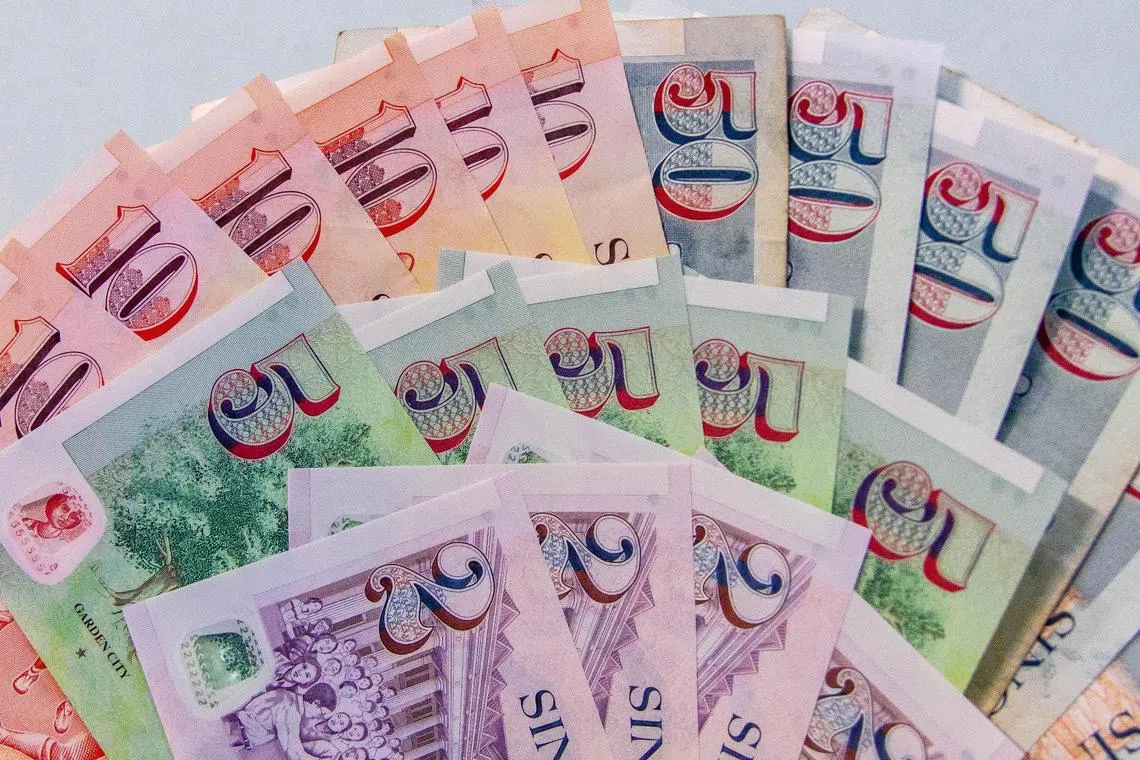Interest rates on T-bills and Singapore Savings Bonds back on an uptrend: Should you consider them?
Sign up now: Get ST's newsletters delivered to your inbox

Yield on six-month T-bills rose to 3.98% in Thursday's auction, up 0.05 percentage points from the Feb 16 auction.
PHOTO: THE BUSINESS TIMES
SINGAPORE - The interest rates on risk-free government securities such as Treasury bills (T-bills) and Singapore Savings Bonds are on an uptrend after falling earlier in the year.
The yields on six-month T-bills rose in the most recent two auctions on Thursday and on Feb 16.
At the latest auction, successful applicants for the T-bills get a yield of 3.98 per cent, an increase of 0.05 percentage point from the Feb 16 auction. The previous Feb 2 auction yielded a return of 3.93 per cent.
The April issue of the Singapore Savings Bonds is also promising a higher interest rate of 3.15 per cent if held for 10 years, and 3.01 per cent if held for a year.
This marks the first time in 2023 that the returns on Singapore Savings Bonds are up, after interest rates on this government security fell below 3 per cent in the February and March issues.
T-bills and Singapore Savings Bonds are different instruments and an investor may want to consider which one is more suitable.
1. Early redemption
T-bills may have a shorter time to maturity, either six months or a year, but they are not as liquid as Singapore Savings Bonds, which can be held for up to 10 years.
An investor has to wait for T-bills to mature to get back the full amount.
If an early exit is sought, T-bills can be sold in the secondary market, at one of the branches of the three local banks DBS, OCBC and UOB. But the full amount invested may not be returned.
Singapore Savings Bonds can be redeemed any time without penalty, with the full amount returned plus any interest earned.
2. Singapore Savings Bonds or savings account?
Banks here have flagship savings accounts, such as UOB One, OCBC 360 and DBS Multiplier. These offer relatively higher interest rates if conditions, such as salary crediting or minimum card spend, are met.
The savings can be withdrawn any time, as long as a minimum balance is maintained in the account.
UOB this week raised interest rates on its Stash savings account, a no-frills account that does not require any condition to earn higher rates. The catch is that an individual will need to maintain more than $10,000 with the bank before earning the higher interest of between 2 per cent and 5 per cent.
3. T-bills or fixed deposits?
With the latest T-bill rate at 3.98 per cent, an investor will be hard-pressed to find fixed deposit options with matching rates.
Among foreign banks, HSBC is promising an interest rate of 4 per cent if a minimum of $30,000 is invested for seven months. For a shorter time of three months, the rate is 3.85 per cent.
Citi is offering 3.68 per cent for a minimum fresh fund placement of $10,000 for three months while Standard Chartered Bank is giving 3.7 per cent for $25,000 in fresh funds for nine months.
Among local banks, OCBC this week dished out 3.55 per cent for a five-month fixed deposit placement of $20,000, and UOB is maintaining its offer of 3.55 per cent for $10,000 in fresh funds for six-, 10- and 12-month periods.
4. Central Provident Fund Investment Scheme (CPFIS)
T-bills, but not Singapore Savings Bonds, can be bought with funds from the CPF Ordinary Account (OA), as long as a minimum of $20,000 is left in the account.
A CPF investment account with DBS, OCBC or UOB is required. DBS customers can apply for T-bills online, while OCBC said it will offer this service by the end of March. UOB said this will be available in “the near term”.
The CPFIS allows OA funds to be placed in fixed deposits with any of the three banks (DBS, OCBC and UOB), after setting aside $20,000 in the OA. But only OCBC offers this option currently. It is promising 3.55 per cent if an individual deposits a minimum $20,000 of OA funds for five months.


